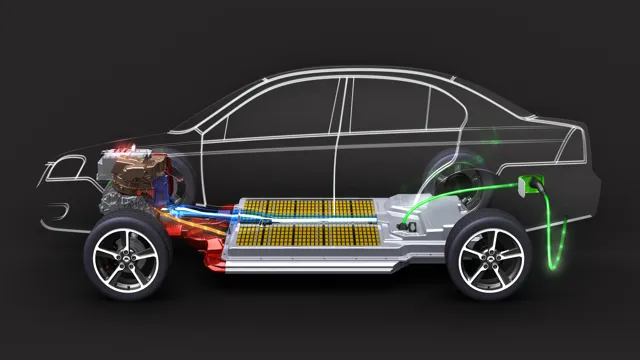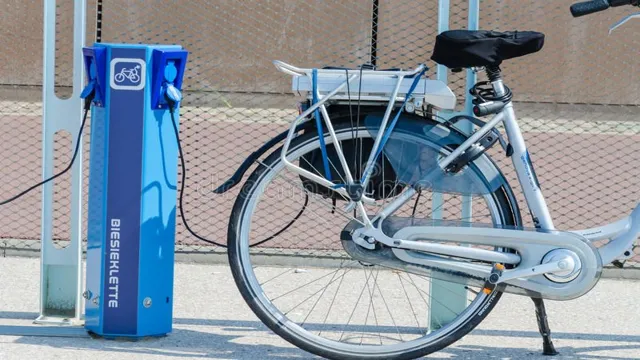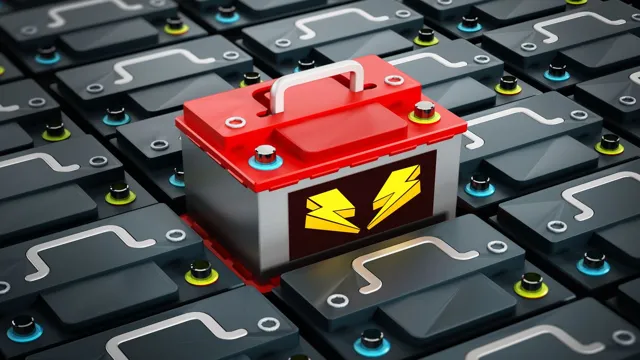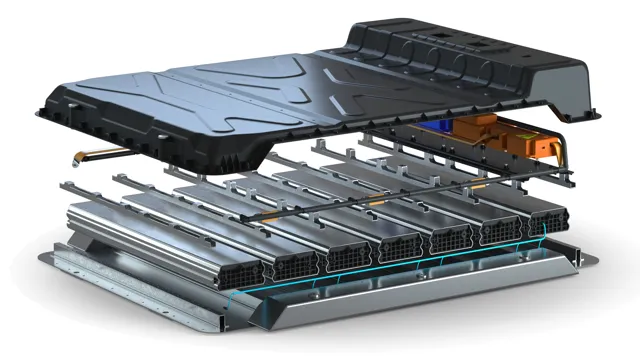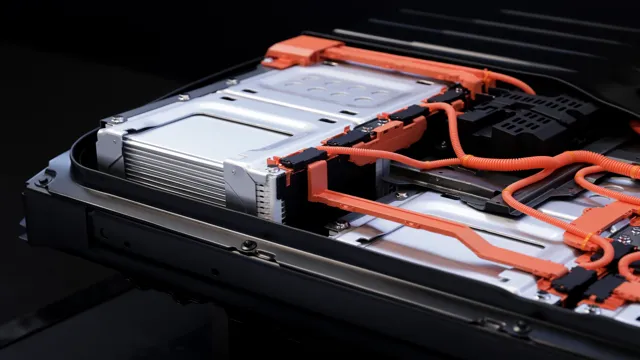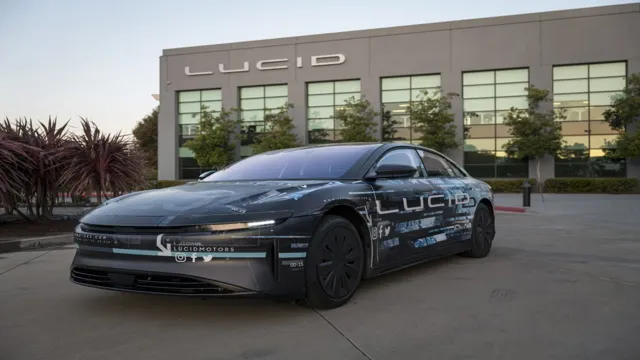Rev up your electric car conversion game with powerful and affordable battery packs
Electric car conversion is an exciting yet challenging project that requires extensive research and planning. One crucial aspect is choosing the right battery pack that suits your specific needs. Unlike gasoline-powered cars, electric cars rely solely on their batteries to run, making battery selection a critical factor in the conversion process.
Therefore, selecting the right battery is as important as selecting the right car. Electric vehicle battery packs come in different sizes and shapes, and each has its unique characteristics. However, not all battery packs are created equal, and choosing the right one can be overwhelming, especially if you lack technical know-how.
The selection process often involves balancing various factors, such as range, power output, weight, cost, and lifespan. Additionally, the choice of battery pack will affect the performance of your vehicle, such as acceleration, speed, and overall driving experience. Thus, it’s crucial to understand the different types of batteries and their pros and cons before settling for one.
Ultimately, battery packs for electric car conversion can determine your vehicle’s success or failure, depending on your needs and preferences. Choosing the right one can bring significant benefits, such as increased range, improved speed, and cost-efficiency, while the wrong battery pack can lead to unsatisfactory performance or even safety hazards. In conclusion, it’s vital to seek professional advice and do thorough research before deciding on the ideal battery pack for your electric car conversion project.
Introduction
Are you considering converting your gas-powered car into an electric vehicle? If so, you’ll need to invest in a high-quality battery pack to power your new electric engine. Battery packs for electric car conversion typically use lithium-ion cells, which are known for their high energy density and long lifespan. These packs come in different shapes and sizes, depending on your car’s make and model.
Choosing the right battery pack is crucial to ensure optimal performance and safety, so it’s essential to do your research and consult with an expert in the field. With the right battery pack and other necessary components, you can transform your car into an eco-friendly, sustainable vehicle that’s powered by clean energy.
Why Convert to an Electric Car?
Electric Cars When it comes to making a positive impact on the environment, more and more people are opting for electric cars as an alternative to gas-guzzling vehicles. There are several reasons why someone may choose to convert to an electric car, including reduced carbon emissions, lower fuel costs, and greater efficiency. Electric cars are also often quieter and require less maintenance than traditional cars.
While there may be some initial investment involved in making the switch, the long-term benefits can ultimately make it a worthwhile choice. Plus, with advancements in technology, electric cars are becoming more affordable and accessible to the general public. So, why not consider taking the leap and converting to an electric car? Your wallet, and the planet, will thank you.
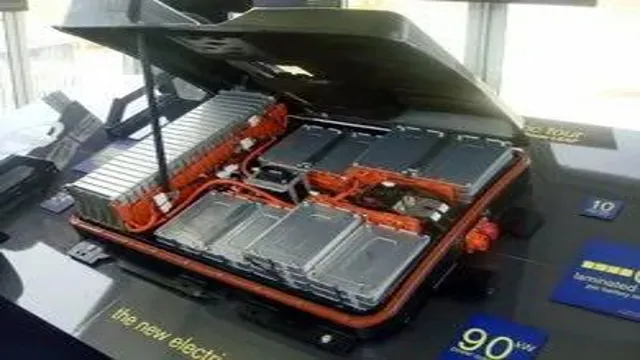
The Importance of Choosing the Right Battery Pack
Choosing the right battery pack is crucial when it comes to powering your devices. A battery pack that is not suitable for your device can lead to decreased performance, shortened battery life, or even damage to your device. It’s important to consider factors such as the capacity, voltage, and compatibility of the battery pack before making a purchase.
Investing in a high-quality battery pack can help ensure that your device is powered efficiently and safely. Don’t settle for a cheap and potentially harmful option when it comes to powering your beloved devices. Choose the right battery pack and enjoy peace of mind knowing that your device is in good hands.
Types of Battery Packs
If you’re planning to convert your car into an electric one, then you’d need a reliable battery pack that suits your needs. There are different types of battery packs for electric car conversion available in the market, each with unique features and drawbacks. One common type is the lead-acid battery pack, which is ideal for short distance travel around the city.
Another type is the Lithium-ion battery pack, which is more expensive but more durable and efficient in terms of energy storage. Other battery packs include nickel-metal hydride and sodium-nickel chloride, which have their own distinct advantages and disadvantages. Regardless of the type you choose, it’s important to consider your specific requirements before making a purchase.
Factors such as price, range, durability, and charging time are all important considerations when choosing a battery pack for your electric car conversion. Ultimately, it’s about finding a battery pack that balances all your needs and gives you the best value for your money.
Lead-Acid Batteries
When it comes to battery packs, there are various types available in the market, and each has its own set of benefits and drawbacks. One of the earliest and most widespread types is the lead-acid battery. These batteries have been around for quite some time, and they are still popular today due to their relatively low cost and decent performance.
Lead-acid batteries work by using lead plates and an electrolyte solution of sulfuric acid to create a chemical reaction that produces electricity. They come in various sizes and shapes, ranging from small car batteries to large industrial ones. However, they do have some downsides, such as being heavy and requiring regular maintenance to avoid sulfation, which can reduce their lifespan.
Despite these limitations, lead-acid batteries are still a reliable and practical option for many applications, especially in vehicles and backup power systems.
Lithium-Ion Batteries
Lithium-Ion Batteries When it comes to lithium-ion batteries, there are a few different types of battery packs to choose from. The most common type of lithium-ion battery pack is the cylindrical pack, which is commonly found in laptops and other portable devices. Another type of battery pack is the prismatic pack, which is commonly used in electric vehicles.
This type of battery is more expensive than the cylindrical pack, but it also has a longer lifespan. The third type of battery pack is the pouch pack, which is the least expensive type of pack and is commonly used in small devices like smartphones and tablets. Each type of battery pack has its own advantages and disadvantages, and it’s important to choose the right pack for your specific needs.
Whether you need a battery pack for a laptop, electric vehicle, or portable device, lithium-ion batteries offer a reliable and long-lasting power source.
Nickel-Metal Hydride Batteries
Nickel-metal hydride batteries are a type of rechargeable battery that uses a nickel-cadmium reaction. These batteries have improved in recent years, and now offer superior performance to earlier models. There are two main types of nickel-metal hydride batteries: those with cylindrical shapes and those with prismatic shapes.
Cylindrical batteries are the most common type used in rechargeable electronics, while prismatic batteries are used in larger electronic devices like electric vehicles. Despite their improved functionality, nickel-metal hydride batteries are not as long-lasting as other types of rechargeable batteries, and their energy density is lower than that of lithium-ion batteries. However, they are a cost-effective, environmentally friendly option for many applications.
Factors to Consider When Choosing a Battery Pack
When it comes to choosing battery packs for electric car conversion, there are several factors to consider. One of the key considerations is the battery’s voltage, which can range from 12 to 800 volts depending on the car’s power requirements. Another key factor is the battery’s capacity, which determines how much energy it can store and how far the car can travel on a single charge.
Other important factors to consider include the battery’s weight, size, and cost, as well as its charging time and lifespan. Ultimately, the best battery pack for your electric car conversion will depend on your specific needs and budget, so be sure to do your research and consult with an expert before making a final decision. With the right battery pack, your electric car conversion can be both reliable and efficient, allowing you to enjoy all the benefits of a sustainable and eco-friendly vehicle.
Range
Range Choosing the right battery pack can be a daunting task, especially when there are many factors to consider. One of the most critical elements is the range, which is the distance that a battery can travel on a single charge. The battery offers a limited range, and understanding this range is crucial to select the right battery pack.
Factors, such as the size of the battery, the weight of the vehicle or device, and the terrain, all play a role in determining the range of the battery. The bigger the battery, the more capacity it has, and the greater range it offers. Similarly, heavier vehicles will decrease the range of the battery pack.
When it comes to terrain, hills and rough terrain will drain the battery much faster than flat ground. It’s essential to consider these factors when determining which battery pack will suit your needs. Ultimately, the range will determine how long you can use your vehicle or device before needing to recharge.
So, it’s vital to consider this feature when purchasing a battery pack.
Performance
When it comes to choosing a battery pack, there are several performance factors to consider. The first is the capacity of the battery, which is measured in milliampere hours (mAh). A higher capacity battery will last longer, but it may also be heavier and bulkier.
Another important factor is the charging speed, which is determined by the output current of the battery. The higher the output current, the faster the battery will charge. However, this may also lead to overheating and potentially damage the battery.
It is also important to consider the type of battery chemistry, such as lithium-ion or nickel-metal hydride, as this can affect the overall performance and lifespan of the battery. Finally, it’s crucial to choose a battery pack from a reputable manufacturer to ensure that it meets safety and quality standards. Overall, choosing the right battery pack requires taking a balanced approach between capacity, charging speed, battery chemistry, and safety considerations to provide the best performance and longevity for your needs.
Price
When it comes to choosing a battery pack, price can be a significant factor for many people. However, it’s important to consider the overall value of the product rather than just its cost. A cheaper battery pack may seem like a bargain, but it could end up costing you more in the long run if it doesn’t meet your needs or breaks down quickly.
It’s important to evaluate the quality and features of the battery pack to ensure that it’s worth the investment. Consider factors such as the capacity, charging time, durability, and compatibility with your devices. A higher-priced battery pack may offer better performance and longer lifespan, ultimately saving you money in the long run.
By carefully assessing your needs and doing research on different options, you can find a battery pack that offers the right balance of price and value for your specific usage.
Conclusion
In conclusion, battery packs for electric car conversion are the key to unlocking the potential of eco-friendly transportation. These powerhouses provide the necessary energy for electric vehicles to travel farther than ever before, ultimately leading to a healthier planet. So, if you’re looking to make the switch to green transportation, don’t be left stranded without a battery pack.
It’s time to harness the power of the electric revolution!”
FAQs
Can any electric car be converted using battery packs?
No, it depends on the specific make and model of the car. Some cars are easier to convert than others due to factors such as weight and available space.
How long do battery packs for electric car conversions typically last?
It varies depending on the quality of the battery pack, as well as usage and maintenance. Generally, battery packs can last anywhere from 5-10 years.
Is it expensive to convert a car to electric using battery packs?
Yes, it can be quite expensive. In addition to the cost of the battery pack itself, there are significant labor costs associated with the conversion process.
Are there any rebates or incentives available for converting a car to electric using battery packs?
Yes, in some states and countries, there are rebates and incentives available to encourage the use of electric vehicles. It’s important to research local laws and regulations to see what might be available.
